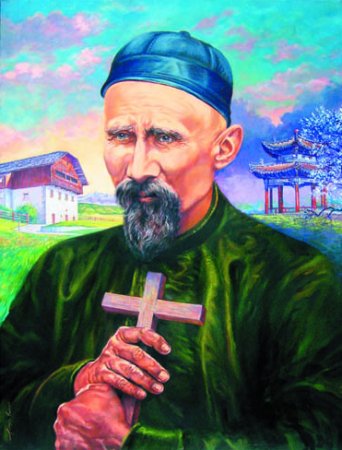Marriage witnesses to God’s love
A couple was getting married and was very excited about the prospect of spending their honeymoon in Europe. They do not want to spoil their honeymoon and travel abroad so they planned early. Infact, they discussed and listed every detail of it, what are the places they will visit, where will they stay and all the things that they will bring along with them. After spending days preparing everything about their honeymoon now they boarded the plane excited and very happy. While they were buckled up in their seat as the plane takes off the run way, the wife said in desperation to her husband, “Darling, we’ve forgotten something very important.” In reply the husband said, “No we didn’t, we’ve listed it all and done it all?” “Yes we did, we have forgotten something very important darling.” the wife insisted. “And what is it that we have forgotten?” the irritated reply of the man. The wife said, “We have forgotten to get married.”
In our Gospel today Jesus teaches about the great importance of marriage by emphasizing the need to preserve it. He argued that Moses gave the permission to divorce in Deuteronomy 24 because of the stubbornness of their heart; whereas, it was not so in the beginning. Rather, it was the reason man that will leave his father and cling to his wife and the two shall become one, citing the beginning of Genesis. Then Jesus concluded, “What God has put together, let to man separate.”
It is very important and imperative to preserve marriage. We have a popular “kasabihan” in Pinoy that captures it very vividly: “Ang pag-aasawa ay di parang kaning isusubo na iluluwa pag ikaw ay napaso.” True enough because, marriage demands couple to be prepared and ready to embrace the life-long commitment of the sacrament.
Indeed marriage is a sacrament. It is not simply an agreement between two contracting parties who decided to live together and who can also decide to end the contract once they find it inconvenient. But rather the marriage of man and woman is a venue to experience God. The life of fidelity and love shared by the husband and wife is meant to proclaim God who is faithful and love.
The Old Testament is primarily a love story between God and his people Israel. Yahweh is madly in love with Israel, whereas Israel is not. Israel is known for its infidelity who worships idols here and there. That is why the prophet Hosea identifies Israel as a harlot, a prostitute. But even if Israel is a whore, a harlot, Yahweh continues to love her, for his love is HESED… the Hebrew word for the love that endures, a faithful love. As the Psalmist say, “For God’s love endures forever.”
This is the vocation proper to husband and wife, that they be loving and faithful to their partner because God was faithful and loving from the beginning to the end. For if they are faithful in their love they give witness to God whose love endures forever.




